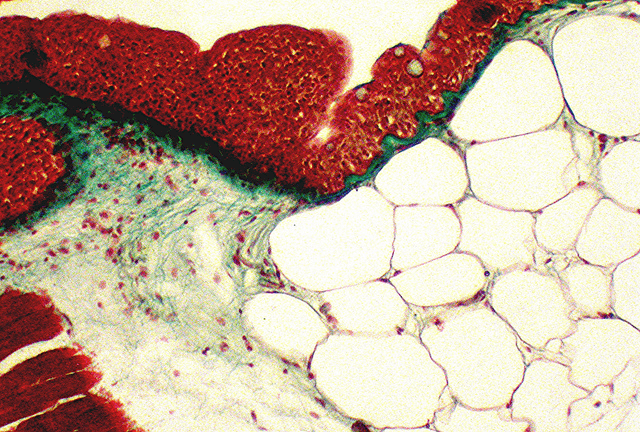Millions of people around the world suffer from Alzheimer’s Disease, a neurodegenerative disease most commonly associated with a loss of memory. It is estimated that Alzheimer’s Disease is the third leading cause of death for the elderly, behind cancer and heart disease. To this day, there is no cure for Alzheimer’s Disease.
Image Source: GSO Images
While a buildup of neurotoxic protein has long been associated with Alzheimer’s Disease progression, new research from University of Montreal shows that a buildup of fat in the brain may be causing the rapid development of Alzheimer’s disease. Over several months, the researchers observed mice that were genetically modified to have Alzheimer’s Disease. They observed increasing amounts of fat deposits in the cells in the forebrain, especially near stem cells, called neural stem cell (NSCs). Stem cells are cells that can differentiate into many different cell types, and, more specifically, NSCs can become the major cells of the central nervous system, including neurons, astrocytes and oligodendrocytes. In addition, NSCs play important functions in learning and in the parts of the brain associated with memory, such as the hippocampus. NSCs have been found to be damaged in the brain of those with Alzheimer’s disease, which may help to explain impairments in learning and memory.
Using biochemical techniques like mass spectrometry, the researchers were able to identify the fat deposits as triglyceride molecules with a large amount of oleic acid, a fatty acid found naturally in animal and vegetable oils. The brain naturally makes these fats as we age, but this increases the rate of the development of Alzheimer’s in mice (or humans) predisposed to the disease. Thus, the researchers propose that the buildup of fatty acids is a disease accelerator. In postmortem examinations of nine Alzheimer’s Disease brains, the researchers observed very similar fat deposits in much higher amounts than in the brain tissue of people who did not develop Alzheimer’s.
Inhibiting the enzyme used to make oleic acid restored NSC function in the Alzheimer’s mice, adding further evidence of a fatty-acid driven disease progression. Interestingly, drugs that inhibit fatty acid forming enzymes are currently being tested on patients with obesity, so similar inhibitor drugs may prove effective in slowing the progression of Alzheimer’s Disease.
Feature Image Source: P1a_014_tissus conjonctif et adipeux_ conjonctive and adipose tissue_Poecilia reticulata Endler.jpg by Franck Genten










